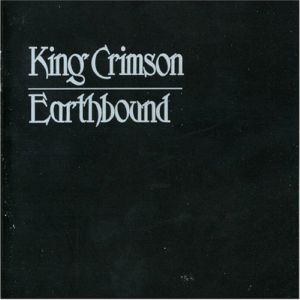
- Format: MP3

The most obscure of the original King Crimson's LPs and the last to get reissued on CD, Earthbound is an anomaly in the group's output. Recorded along the final tour of the Robert Fripp/Boz Burrell/Ian Wallace/Mel Collins lineup in the late winter of 1972, the album was always notorious for its abysmal sound and for showcasing a band that was in the throes of disintegration, Burrell, Collins, and Wallace pushing toward blues and funk, while Fripp was still fixated on classical music. The August 2002 CD release, remastered in state-of-the-art digital audio, does offer some considerable improvement in fidelity over the LP. "21st Century Schizoid Man" is the best cut here, a blistering account that rolls like an armored tank over the original studio version; Boz Burrell's voice, processed through a VCS3 synthesizer, takes a little getting used to (though it does allow the singer to replicate on stage the studio-generated distortion that highlighted Greg Lake's vocal), but when Fripp's guitar comes in and then Mel Collins launches into his featured spot on sax, the studio version just wilts — it might be a little too overloaded to qualify as the definitive version of the song, but it's a must-hear track for anyone who loved the classic original band. "Peoria" is a jam that captures a side of this band that was never represented on record, a jazzy two-chord improvisation that heavily features Burrell's scatting over Fripp's heavy volume-pedal work and some Collins sax-blowing. "The Sailor's Tale" is the album's sole nod to Crimson's progressive side, showcasing Collins' Mellotron work and Fripp's guitar. "Earthbound" moves through some funky rhythms and more scatting by Burrell, before it turns into a showcase for Fripp's pyrotechnics. And then there's "Groon," a 15-minute expansion of the Crimson B-side highlighting each bandmember, but especially Wallace and Fripp, and works well even with a four-minute digression on the VCS3, which phases the sound of the group into some unusual and intermittently interesting patterns; it ends on a stunningly apocalyptic note from Fripp's guitar. The CD makes this sound about as palatable as it ever will be, considering that everything here was recorded on a remote cassette hook-up without noise reduction — Earthbound is still going to jar listeners who are accustomed to the group's meticulous studio productions or the elegant, classically-oriented sound that they cultivated in that milieu; allowing for its limitations, however, it does represent the final incarnation of the longest lasting lineup of the early group, and a side of their work that was otherwise lost to posterity.